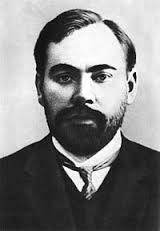
LONDON MATERIALISMS READING GROUP MEETINGS
We are very pleased to announce an exciting series of events co-sponsored/co-organised by the Centre for the Study of Democracy, University of Westminster:
1) The next London Materialisms Reading Group meeting is:
Thursday 3 December 2015 – Nick Srnicek (co-author of the Verso manifesto Inventing the Future: Postcapitalism and a World Without Work) will be introducing Graham Harman’s Bruno Latour: Reassembling the Political
Future dates for your diary:
21. Thursday 21 January 2016 – Philip Cunliffe (University of Kent) will be introducing Alexander Wendt’s Quantum Mind and Social Science: Unifying Physical and Social Ontology
22. Thursday 25 February 2016 – introduction (tbc) we will be discussing Chapter 1 ‘Introduction: Rhizome’ of Gilles Deleuze and Felix Guattari’s A Thousand Plateaus
23. Thursday 31 March 2016 – Michiel van Ingen (University of Westminster) will be introducing Kate Soper’s What is Nature: Culture, Politics and the Non-Human
Reading group meetings are open to all and take place Thursdays 6.30-8.00pm, Westminster Forum, Department of Politics and International Relations, 5th Floor, 32-38 Wells Street, London, W1T 3UW (5 minutes from Oxford Circus tube). Wine and nibbles are provided.
If you wish to be on the Materialisms Reading Group mailing list please email me at d.chandler@wmin.ac.uk. Further information available here: http://www.davidchandler.org/materialisms/.
2) The next in the Living in the Anthropocene series of workshops is:
Decolonising the Anthropocene
Friday 27 November, 1-5pm, Westminster Forum, Centre for the Study of Democracy, University of Westminster, 32-38 Wells Street, London, W1T 3UW (5 minutes walk from Oxford Circus tube station)
Convenors: Olivia Rutazimbwa (University of Portsmouth), Angela Last (Glasgow University), Kathryn Yusoff (Queen Mary)
Speakers and roundtable discussants: Patricia Noxolo (Birmingham), Robbie Shilliam (Queen Mary), Kathryn Yusoff (Queen Mary), Olivia Rutazibwa (Portsmouth), Angela Last (Glasgow).
The concept of the Anthropocene involves the rejection of one of modernity’s most important tenets: the nature/culture divide. Yet from a post-western perspective this can hardly be seen as a ground-breaking discovery. The colonial experience has for long evidenced the destructive nature of this divide while indigenous cosmologies, religious worldviews as well as other (non-western) philosophies have provided alternatives to the nature/culture divide and continue to do so. Does the holistic and relational understanding of reality entailed in the idea of the Anthropocene present an opportunity to rethink the sources of our knowledge production and work towards a more inclusive and sustainable use and distribution of the available planetary resources; or is the ‘discovery’ of the Anthropocene yet another stage of Eurocentric knowledge production?
Who sets the agenda, which voices and topics continue to be silenced and do they consolidate or dissipate existing inequalities? How much space is there for the ‘pluriversality’ Walter Mignolo calls for in the potentially totalising proclamation of the Anthropocene? What does the attention to complexity and non-linearity mean for post- and decolonial understandings and attachment to issues of agency, autonomy and self-determination? This workshop will examine these and other questions, both theoretically and empirically, to explore the merits and challenges of the Anthropocene to decoloniality and vice versa. Understood as a triple invitation to de-mythologise, de-silence and de-colonise, decoloniality combines both a deconstructive toolbox for critique at the epistemological level and a constructive imperative to counter the colonial (material) forms of extreme power inequality.
Information and registration here: https://www.eventbrite.co.uk/e/decolonising-the-anthropocene-tickets-19330332545 further information on the series: http://rethinkingtheanthropocene.blogspot.co.uk/
3) Call for papers, Centre for the Study of Democracy and Faculty of Architecture and the Built Environment joint University of Westminster workshop:
Design After Planning: Examining the Shift from Epistemology to Topology https://designafterplanning.wordpress.com/
10.00 – 17:30, Friday 5 February 2016, University of Westminster, London
Confirmed keynote speakers: Filip de Boeck (KU Leuven) & Erik Swyngedouw (University of Manchester)
The question of how different types of ‘planning’ should deal with uncertainty has taken on fresh importance. On the one hand, existential threats such as climate change, overpopulation, and new forms of global conflict expand the temporal and spatial horizons of our sense of responsibility as never before. On the other, the world is constructed increasingly as emergent, complex and non-linear; the ‘wicked’ problems it throws up are not amenable to modernist, top-down solutions. The intelligence required to tackle contemporary problems is understood to be dispersed and enacted, rather than a pre-given object to be gathered by the state. In Mol’s (2002) formulation, epistemological questions (‘how can we be sure?’) are increasingly usurped by pragmatic ones (‘how can we live with doubt?’).
In this embrace of uncertainty, concerns over the limitations of representational ‘modelling’ are being dislodged by an ideal of unmediated, dynamic problem-resolution whereby the ‘topologies’ of complex reality continually reveal themselves. In practical terms, this has entailed a shift towards iterative processes of dispersed governance; policy makers no longer attempt to impose order on a chaotic outside, but rather attempt to ‘see’ through the emergent systems themselves. Thus, goals of international developmental aid are no longer determined from the centre so much as coproduced in specific locations with the aid of the internet of things and the citizen as sensor; top-down planning of the built environment has given way to localised, discursive decision-making alongside an embrace of informality; the residual modernism of sustainable development is increasingly inflected with ‘resilience’.
If the broad project here is to work with emerging, complex systems, rather than against or in spite of them, might it then be productive to conceptualise the role of governing and city-making in terms of ‘design’ rather than planning? If so, is there value in retheorising design so as more explicitly to capture contemporary interactive logics of emergent causality and agency? Or, alternatively, does linear planning have a newly important role to play? Might it function as a type of normative resistance to the ‘market logic’ with which these new forms of governance are perhaps aligned?
We plan to include three panels on: • disaster and risk design – examining the rise of topological approaches to international aid and disaster relief, digital humanitarianism, crowd-sourcing and citizens as sensors • designing with emergent urban systems – exploring the potential for iterative and decentred modes of governance and urban design to overcome the shortcomings of liberal-modernist planning • resilience versus sustainability – investigating the theoretical and practical purchase of resilience and sustainability in relation to the ‘topologies’ of complex reality, and the problematic theoretical interface between the two concepts.
Submitting abstracts: We invite papers relating to any of the panels above, which contribute to a theorisation of spatial planning and urban, national, or international governance as processes of design, as well as those which question this endeavour. Speakers from all academic disciplines are welcome to participate (and there will be no registration fee).Please send your abstract (c.350 words) to: Isis Nunez Ferrera (i.nunez-ferrera@psi.org.uk), Tudor Vilcan (tudorvilcan@gmail.com), and Rob Cowley (robert.cowley@kcl.ac.uk) by 1 December 2015.
Best wishes,
David Chandler, Professor of International Relations, Director of the Centre for the Study of Democracy, Department of Politics and International Relations, University of Westminster, 32-38 Wells Street, London, W1T 3UW. Tel: ++44 (0)776 525 3073.
Journal Editor, Resilience: International Policies, Practices and Discourses: http://www.tandfonline.com/loi/resi20
Amazon books page: http://www.amazon.co.uk/David-Chandler/e/B001HCXV7Y/ref=ntt_dp_epwbk_0
Personal website: http://www.davidchandler.org/
Twitter: @DavidCh27992090
***END***
‘Human Herbs’ – a song by Cold Hands & Quarter Moon: http://www.youtube.com/watch?v=Au-vyMtfDAs
Posted here by Glenn Rikowski
Glenn Rikowski @ Academia: http://independent.academia.edu/GlennRikowski
Ruth Rikowski @ Academia: http://lsbu.academia.edu/RuthRikowski
Volumizer: http://glennrikowski.blogspot.com
Rikowski Point: http://rikowskipoint.blogspot.co.uk/
Ruth Rikowski at Serendipitous Moments: http://ruthrikowskiim.blogspot.co.uk/
 KEYWORDS IN RADICAL PHILOSOPHY AND EDUCATION: COMMON CONCEPTS FOR CONTEMPORARY MOVEMENTS
KEYWORDS IN RADICAL PHILOSOPHY AND EDUCATION: COMMON CONCEPTS FOR CONTEMPORARY MOVEMENTS



















